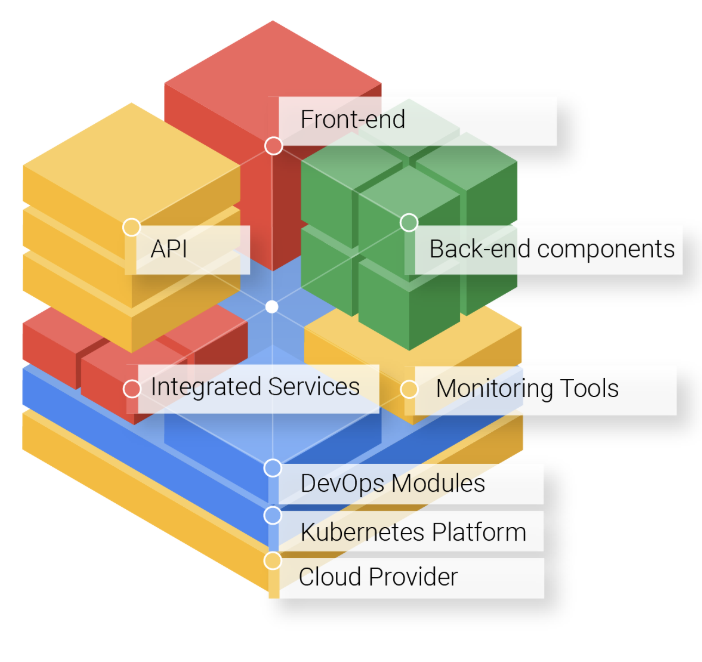Blockchain, DLT and crypto projects often require a token exchange to enable a functional ecosystem around some crypto asset.
A cryptocurrency exchange or a digital currency exchange (DCE) is a business that allows customers to trade cryptocurrencies or digital currencies for other assets, such as conventional fiat money or other digital currencies. – Wikipedia
For the projects of our customers we need to keep track of and recommend the exchange engines that best fit certain project requirements. Provided below is a comparison table that Dappros team has compiled. We appreciate any feedback or additions in the list – please use the comments section.


Most of the projects we deal with are business / enterprise use cases that usually require private or hybrid permission-based blockchain networks. Tokens in these projects are not currencies and can only be traded or exchanged in a closed environment. This is why some of the core requirements for us is for crypto exchange to be:
- open-source – we shall be able to access Github repo, deploy it and test it
- enterprise friendly license – it shall be under MIT, Apache 2.0 or other open-source or commercial license that is friendly to commercial close source projects
- customisable – clear modular architecture, separate logic and user interface, clearly documented data structures, commonly available technology stack
- feature set – obviously we also look into feature set which shall cover all typical crypto token exchange requirements
- maintainers team – it’s always important to try & understand who is behind the project as obviously it is better to pick projects that are there for long term
Following the above criteria we have compiled a list of exchanges that we consider in our projects and will keep updating this in future publications.
Table 1: Open-source / customisation friendly exchanges
| Exchange project name | License type | Centralized / Decentralized | Technology stack | Team location | Details |
| Peatio (peatio.tech) | Open Source, MIT | Centralized | Ruby | France | – Support ERC20 Tokens – KYC Verification provided by Barong Github repository: https://github.com/peatio |
| RubyKube (https://rubykube.io/) | Open Source, MIT | Centralized | Ruby | France, (Team seems to be Ukrainian / Russian) | Github repo: https://github.com/rubykube |
| etherex (etherex) | Open Source, MIT | Decentralized | NodeJS | USA, Delaware | EtherEx is an open source, fully transparent, next generation decentralized exchange built on Ethereum. |
| OpenTrade (multicoins.org) | Open Source, MIT | Centralized | NodeJS | Russia | Github Repository https://github.com/3s3s/opentrade |
| 0x Protocol (0xproject.com) | Open Source, Apache 2.0 | Decentralized | NodeJS | USA, San Francisco | Added exchange functionality for ERC 20 tokens, ERC 721 tokens, or any new asset type. Github repository: https://github.com/0xProject |
For the benefit of open blockchain or hybrid projects who need to list tokens with popular exchanges that are typically close sourced we also provide those options in the table below.
Table 2: Public / listing exchanges (closed source)
| Exchange project name | Commercial terms, SDK license | Centralized / Decentralized | Technology Used | Country | Details / updates |
| Coinbase (coinbase.com) | Bank purchase -> 1.49% Credit/Debit Card -> 3.99 % SDK: Apache-2.0 | Centralized | Ruby, NodeJS | USA, San Francisco | Added security like store your funds in a vault with time delayed withdrawals. |
| Binance (binance.com) | Eth -> 0.01 ETH BTC -> 0.0005 BTC More details: (https://www.binance.com/en/fee/schedule) SDK: MIT | Centralized | API available in NodeJS, GO, PHP, Python | Malta | Binance Will List USD Coin (USDC) on 2018/11/17 |
| cryptoBridge (crypto-bridge.org) | Trading fee: 0.2% SDK: MIT | Decentralized | Built on the Bitshares (BTS) platform | USA, East Coast | The weekly development update series will inform users about progress made on user-facing aspects of CryptoBridge |
| api-changelly (changelly.com) | Open-Source API-Charge -> 0.5% SDK: MIT | Centralized | NodeJS | Malta, Valetta | 24 hour statistics. |
Where applicable we list type of software license for SDK (software development kit) of the exchange. While exchange itself may remain closed source and not open for customisation, some listing, trading and configuration features may be available via API access and there may be SDK provided with code samples that are helpful during project implementation and for future ecosystem development.

